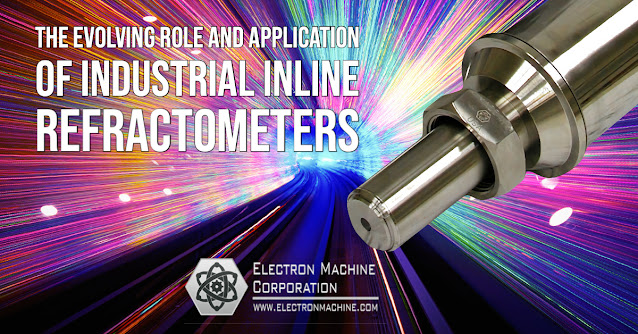Industrial inline process refractometers are devices that measure the refractive index of a medium, which is usually related to its composition or purity. Refractometers measure the degree of change in direction or refraction of light as it passes through a liquid. The refractive index of a liquid can indicate its composition, purity, concentration, and other chemical or physical properties. These devices are widely used in industries such as food & beverage, oil & gas, chemical, pharmaceutical, and paper & pulp.
With the advancement of technology, several promising new applications have emerged:
Waste Water Treatment: Refractometers can be used in wastewater treatment facilities to measure and control the concentration of dissolved solids and other chemicals, helping to optimize the treatment process and ensuring the water is safe for disposal or re-use.
Battery Manufacturing: In producing batteries, refractometers monitor the concentration of electrolytes, helping to ensure the quality and performance of the final product.
Biotechnology: In the biotech sector, refractometers are used in fermentation processes to control sugar and alcohol concentrations in real-time, allowing for better control and optimization.
Renewable Energy: In producing biofuels, refractometers can help monitor and control the concentration of various inputs and products, improving efficiency and product quality.
Precision Agriculture: Using refractometers in precision agriculture can help determine the nutrient concentration in irrigation water and soils, aiding in precision fertilization and irrigation strategies.
Advanced Material Manufacturing: In semiconductor manufacturing or nanotechnology industries, refractometers can accurately measure the refractive index of materials, which is crucial for quality control and process optimization.
Medicine and Healthcare: Though not an industrial application, refractometers can be used in clinical labs to measure the concentration of proteins and other substances in bodily fluids, contributing to better diagnostic and treatment strategies.
Carbon Capture and Storage: In carbon sequestration processes, refractometers can help measure the concentration of CO2 in various mediums, ensuring the efficiency of the capture and storage process.
Food Processing: Beyond traditional use in sugar concentration measurement, new applications in food processing include measuring the concentration of ingredients in complex mixtures, optimizing fermentation processes, and ensuring the quality of finished products.
Cosmetics and Personal Care Products: Refractometers can help ensure the quality and consistency of products such as soaps, creams, and shampoos by measuring the concentration of various ingredients.
As technology advances, the potential for new applications continues to grow. Continued accuracy, automation, and data integration improvements will drive further use of refractometers across various industries.
One of Electron Machine's distinctive offerings is its MPR E-Scan, an inline process refractometer that provides continuous, real-time measurement. What's fascinating about the MPR E-Scan is its ability to stand up to harsh industrial environments. It's built with a rugged, stainless-steel body and sapphire prism, ensuring it remains unaffected by abrasive or corrosive substances. The MPR-E-Scan also operates under extreme temperature and pressure conditions. Furthermore, their refractometers include modern communication capabilities, which means they can seamlessly integrate with process control systems, helping to optimize efficiency and quality control within a production line.
Electron Machine Corporation
https://electronmachine.com
+1 352-669-3101
